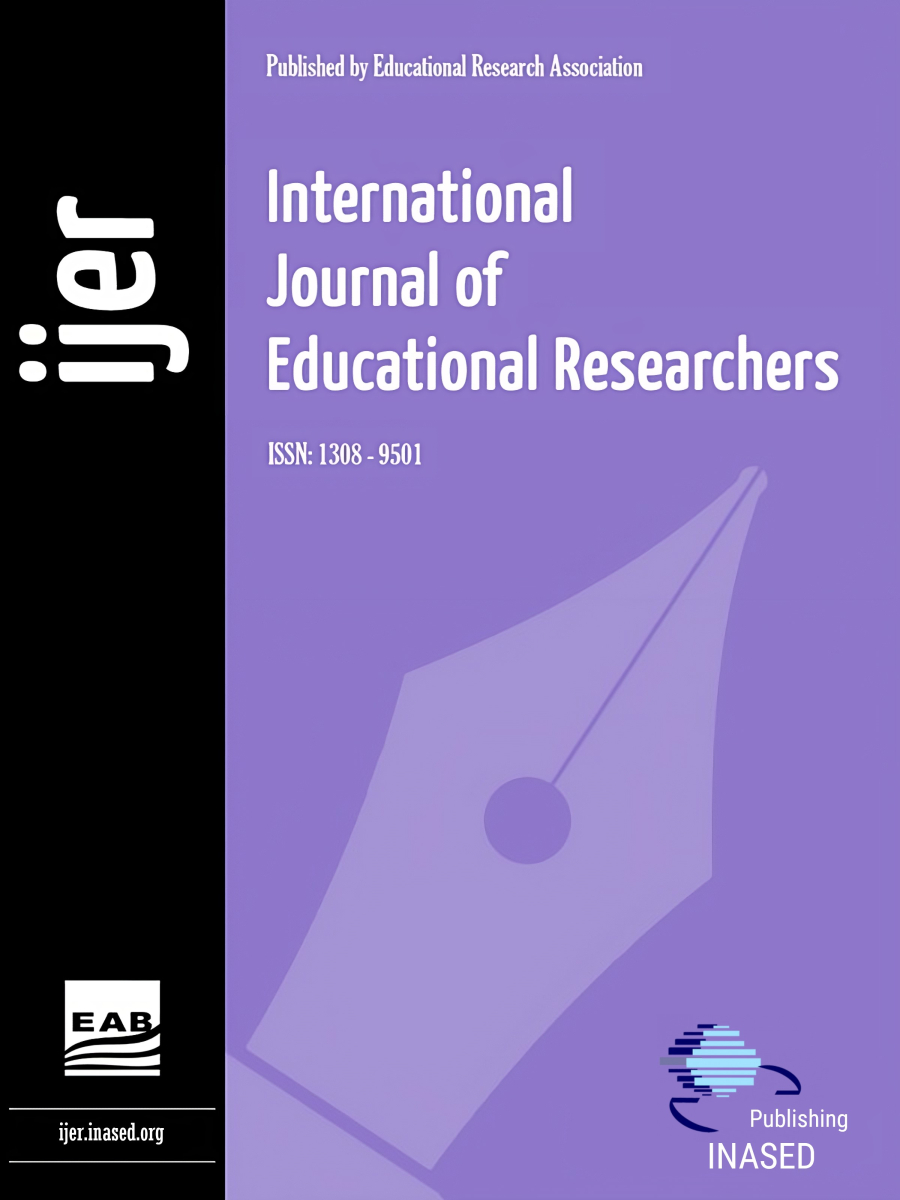- Arıkan, A. (2010). Effective English language teacher from the perspectives of prospective and in-service teachers in Turkey. Electronic Journal of Social Sciences, 9(31), 209-223. [Google Scholar]
- Arıkan, A., Taşer, D., & Saraç-Süzer, H. S. (2008). The effective English language teacher from the perspectives of Turkish preparatory school students. Education and Science, 33(150), 42-51. [Google Scholar]
- Aydın, B., Bayram, F., Canıdar, B., Çetin, G., Ergünay, O., Özdem, Z., & Tunç, B. (2009). Views of English language teachers on the affective domain of language teaching in Turkey. Anadolu University Journal of Social Sciences, 9(1), 263-280. [Google Scholar]
- Borg, S. (2006). The distinctive characteristics of foreign language teachers. Language Teaching Research, 10(1), 3-31. [Google Scholar]
- Brosh, H. (1996). Perceived characteristics of the effective language teacher. Foreign Language Annals, 29, 125-38. [Google Scholar]
- Brown, H.D. (1978). The good language teacher: Coping with the effect of affect. Catesol Occasional Papers, 4, 33-39. [Google Scholar]
- Cheung, H. Y. (2006). The measurement of teacher efficacy: Hong Kong primary in-service teachers. Journal of Education for Teaching: International research and pedagogy, 32(4), 435-451. [Google Scholar]
- Clark, J. C., & Walsh, J. (2002). Elements of a model of effective teachers. Paper presented at AARE Conference, Brisbane, 1-5 December. Retrieved from http://www.aare.edu.au/02pap/wal02220.htm [Google Scholar]
- Cruickshank, D. L., Bainer, D. L. & Metcalf, K. K. (1999). The act of teaching, 2nd Edition. Boston: McGraw- Hill. [Google Scholar]
- Cruickshank, D. R., & Haefele D. (2001). Good teachers, plural. Educational Leadership, 58(5), 26-30. [Google Scholar]
- Follman, J. (1995). Elementary public school pupil rating of teacher effectiveness. Child Study Journal, 25(1), 57-78. [Google Scholar]
- Ghasemi, B., and Hashemi, M. (2011). The study of the characteristics of successful English language teachers from the view point of the English language students of Islamic Azad University, Hamedan Branch. Procedia - Social and Behavioral Sciences, 28, 411-415. [Google Scholar]
- Karen, S. (2001). First year experiences series: Being a more effective learner. University of Sidney Learning Centre Publishing. Australia: Sidney Retrieved from [Google Scholar]
- http://sydney.edu.au/stuserv/documents/learning_centre/EffectiveLearner.pdf [Google Scholar]
- Koutsoulis, M. (2003). The characteristics of the effective teacher in Cyprus public high school: The students’ perspective. Arlington, VA: American Association of School Administrators. (ERIC Eric Document Reproduction Service No. 478 761) [Google Scholar]
- Malikow, M. (2006). Effective teacher study. National Forum of Teacher Education Journal, 16(3), 1-9. [Google Scholar]
- Minor, L. C., Onwuegbuzie, A. J., Witcher, A. E. & James, T. L. (2002). Preservice teachers’ educational beliefs and their perceptions of characteristics of effective teachers. Journal of Educational Research, 96(2), 116-127. [Google Scholar]
- Oxford Advanced Learner’s Dictionary (6th Ed.) (2006). Oxford: Oxford University Press. [Google Scholar]
- Park, G. P. & Lee, H. W. (2006). The characteristics of effective English teachers as perceived by high school teachers and students in Korea. Asia Pacific Education Review, 7(2), 236-248. [Google Scholar]
- Sanderson, D. (1983). Modern language teachers in action: A report on classroom practice. York: Language Materials Development Unit of the University of York. [Google Scholar]
- Shishavan, H. B., & Sadeghi, K. (2009). Characteristics of an effective English language teacher as perceived by Iranian teachers and learners of English. English Language Teaching, 2(4), 130-143. [Google Scholar]
- Scoulller, K. (2001). First year experiences series: Being a more effective learner. University of Sidney Learning Centre Publishing. Retrieved from [Google Scholar]
- http://sydney.edu.au/stuserv/documents/learning_centre/EffectiveLearner.pdf [Google Scholar]
- Steinberg, R. J., & Horvath, J. A. (1995). A prototype view of expert teaching. Educational Researcher, 24(6), 9-17. [Google Scholar]
- Xiaojun Shi, B. A. (2005). What matters? The full-time graduate students’ perceptions of teacher effectiveness. Unpublished Master’s Thesis, Brock University, St. Catharines, Ontario. [Google Scholar]
- Walls, R. T., Nardi, A. H., Minden, A. M., & Hoffman, N. (2002). The characteristics of effective and ineffective teachers. Teacher Education Quarterly, 29(1), 39-48. [Google Scholar]
- Wei, M., den Brok, P. & Zhou, Y. (2009). Teacher interpersonal behaviour and student achievement in English as a Foreign Language classrooms in China. Learning Environments Research, 12(3), 157-174. [Google Scholar]
- Werbinska, D. (2009). A profile of effective teacher of English: A qualitative study from Poland. Haccetepe University Journal of Education, 36, 306-315. [Google Scholar]
- Wichadee, S. (2010). Defining the effective English language teacher: Students’ and teachers’ perspectives. In A. M. Stoke (Ed.), JALT2009 Conference Proceedings. Tokyo: JALT. [Google Scholar]
- Witcher, A., Onwuegbuzie, A., & Minor, L. (2001). Characteristics of effective teachers: Perceptions of pre- service teachers. Research in the Schools, 8(2), 45-57. [Google Scholar]
- Wong H. K., & Wong, R. T. (1998). The first days of school. Mountain View, CA: Harry K. Wong Publications. [Google Scholar]
- Yu-Hsin, T. (1999). Examining student perceptions of the ideal English language instructor. Hwa Kang Journal of TEFL, 5, 1-26. [Google Scholar]
|


